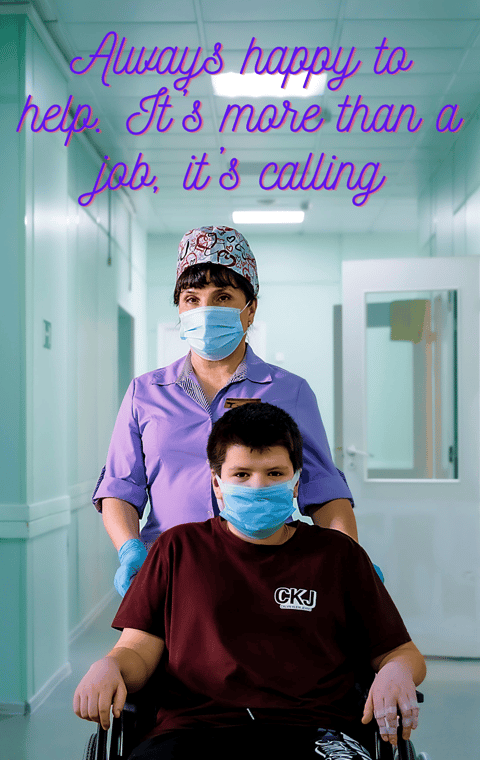The Importance of Skills, Calling, and Compassion in Nursing and Care-giving
Splendor T
3/21/20242 min read
The Importance of Skills and Calling in Nursing and Care-giving
When it comes to being a good nurse or caregiver, skills are undoubtedly important. However, it is essential to recognize that these roles require more than just technical expertise. Nursing and caregiving are professions that demand a unique combination of skills, compassion, and a sense of calling.
The Role of Skills
Skills form the foundation of any profession, and nursing and care-giving are no exceptions. Medical knowledge, technical proficiency, and the ability to perform tasks efficiently are crucial aspects of providing quality care. Nurses and caregivers undergo extensive training to acquire these skills, ensuring that they can meet the physical and medical needs of their patients.
However, it is important to note that skills alone do not make a good nurse or caregiver. While technical competence is necessary, it is not sufficient to provide holistic and compassionate care. Patients and their families need more than just medical expertise; they require emotional support, empathy, and a personal connection.
The Calling and Life Purpose
For many nurses and caregivers, their profession is not merely a job but a calling and life purpose. Numerous studies have shown that individuals who feel called to these roles often exhibit higher levels of job satisfaction and provide better patient outcomes.
A study published in the Journal of Nursing Scholarship found that nurses who viewed their work as a calling reported higher levels of engagement, commitment, and satisfaction. They were more likely to go above and beyond their job requirements, resulting in improved patient care and outcomes.
Similarly, research conducted by the University of Pennsylvania School of Nursing revealed that caregivers who felt a sense of calling experienced reduced burnout and higher levels of empathy. This emotional connection not only benefits the caregiver but also enhances the overall quality of care provided to patients.
The Power of Compassion
Compassion is a fundamental aspect of nursing and care-giving. It goes beyond technical skills and enables healthcare professionals to connect with their patients on a deeper level. Compassionate care involves actively listening, understanding patients' needs, and showing empathy.
Studies have consistently shown that compassionate care leads to improved patient satisfaction, better adherence to treatment plans, and positive health outcomes. Patients who feel cared for and supported are more likely to trust their healthcare providers and actively participate in their own healing process.
In a study published in the Journal of General Internal Medicine, patients reported that compassionate care made them feel more comfortable, safe, and valued. They expressed a greater willingness to disclose important information and engage in open and honest communication with their healthcare providers.
Conclusion
While skills are undeniably important in nursing and care-giving, they are not the sole determinants of being a good nurse or caregiver. The profession requires a sense of calling, compassion, and an understanding of the holistic needs of patients. By recognizing the significance of these factors, healthcare professionals can provide the highest level of care and make a positive impact on the lives of those they serve.


Find us at
First Floor, 101 Victoria Road Romford London RM1 2LX
Working Hours
Monday - Friday: 10:00 AM - 5:00 PM
Saturday: 12:00 AM - 5:00 PM
Sunday: Closed
Emergency: Out Of Hours cover available
